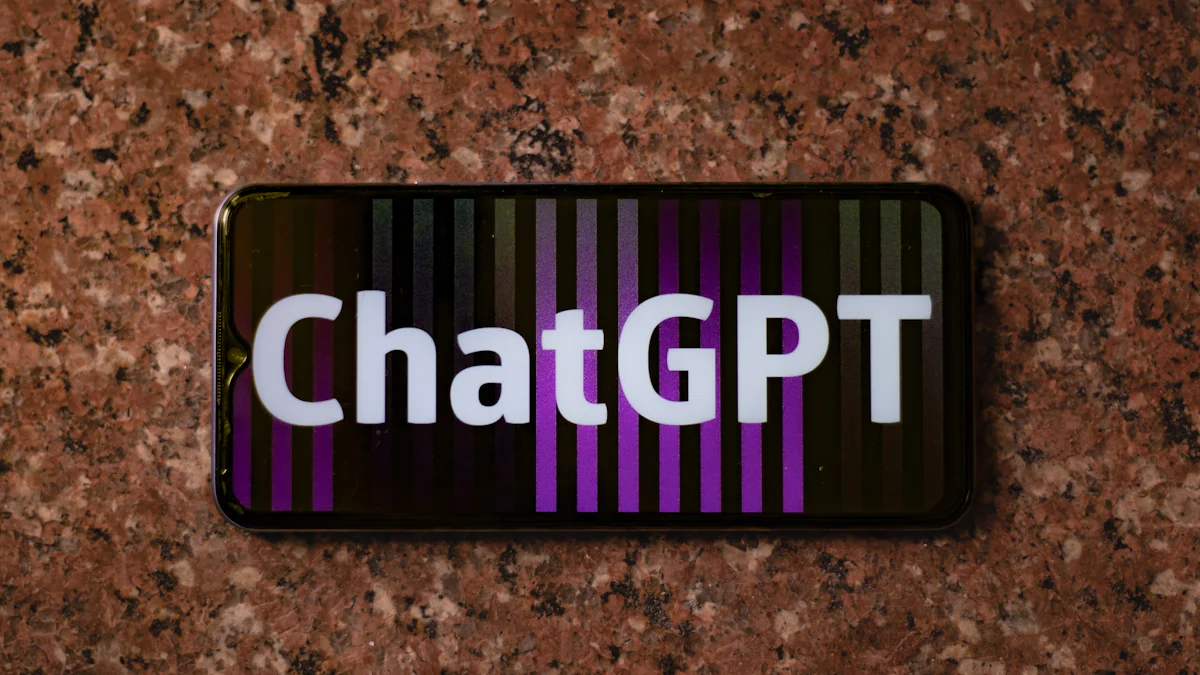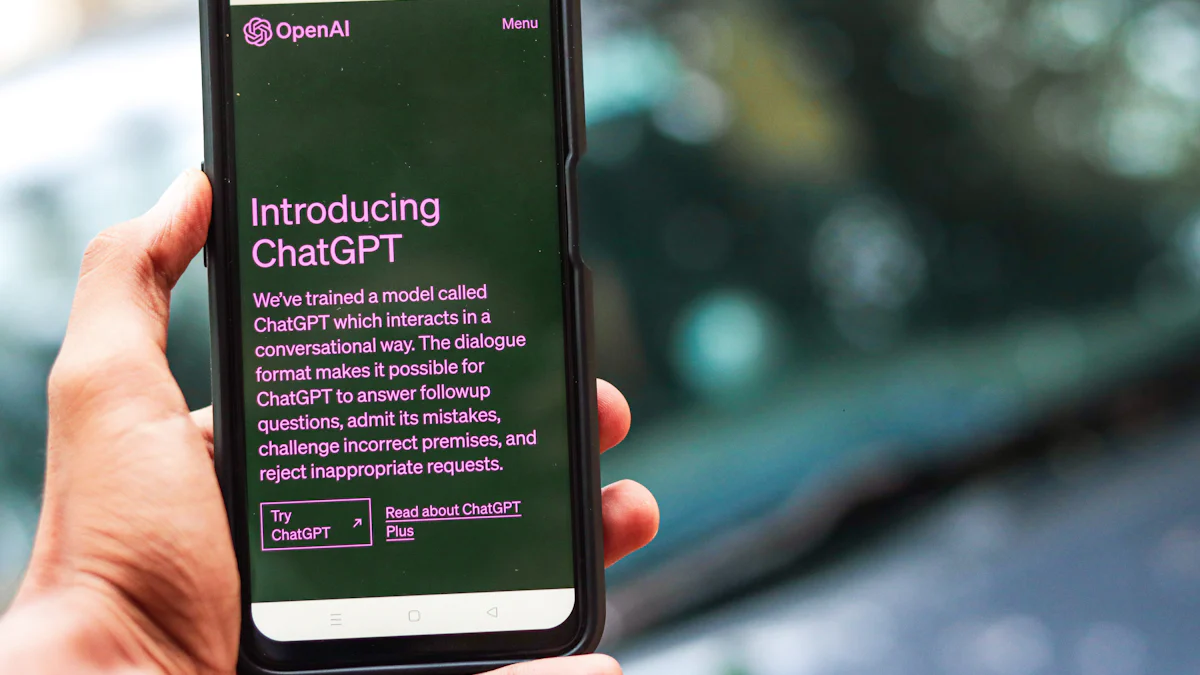The Future of Conversational AI: Appointify and Custom ChatGPT

The world of conversational AI is rapidly expanding, with a projected market growth of nearly $14 billion by 2025, showing a 22% increase from 2020. This surge indicates a significant shift in the tech landscape, where 38% of companies are already utilizing conversational AI solutions. The rise in conversational AI applications is not only transforming businesses but also enhancing interactions across various industries. As natural language processing capabilities improve, the potential for seamless communication and efficient information delivery continues to grow, making it an essential part of the future technological landscape.
Source: Statistical Data
Introduction to Conversational AI

Conversational AI applications are widely used in virtual personal assistants, customer support systems, chatbots, and other interfaces where human-computer interaction through dialogue is essential. These applications utilize technologies such as natural language processing (NLP), machine learning (ML), and sometimes even elements of computational linguistics to understand user inputs, generate appropriate responses, and continuously improve their conversational abilities over time.
What is Conversational AI?
Conversational AI encompasses technologies such as voice assistants and chatbots capable of responding to natural language and offering human-like interaction. They use machine learning, advanced dialogue management, natural language processing, and automated speech recognition to process text and voice input and learn from interactions. In the era of artificial intelligence, a conversational AI platform can help with a host of different tasks and activities.
Examples in Everyday Life
Virtual Personal Assistants: Provide personalized assistance for tasks like setting reminders, sending messages, or making calls.
Customer Support Systems: Offer efficient solutions for common queries without the need for human intervention.
Chatbots: Engage in conversations with users to provide information or assist with specific tasks.
Benefits for Businesses and Individuals
Efficient Customer Interactions: Conversational AI streamlines customer interactions by handling repetitive tasks, allowing teams to focus on more important matters.
Increased Productivity: By optimizing operations and reducing unnecessary expenses, businesses can increase productivity using conversational AI solutions.
Personalized Service: Advanced solutions come with an in-built memory to provide personalized service by remembering user preferences and details.
The Role of AI in Daily Interactions
The evolution of conversational AI has led to its integration with platforms like Voiceflow and Google Calendar. This integration enables seamless communication between users and technology while offering numerous advantages.
Integration with Voiceflow and Google Calendar
The Appointment Setting AI Chatbot leverages the power of Voiceflow along with Google Calendar to simplify the process of scheduling appointments. It eliminates the need for complex coding by providing a visual, code-free environment for creating automated tasks.
The No-Code Advantage
By utilizing no-code/low-code chatbots like Appointify built using Voiceflow, businesses can streamline the appointment setting process without extensive programming knowledge. This innovative approach offers a seamless experience for both users and businesses alike.
Exploring Appointify
As the demand for conversational AI solutions continues to grow, Appointify has emerged as a standout platform, offering innovative features and seamless integration with Voiceflow and Google Calendar.
What Makes Appointify Stand Out
Integration with Voiceflow and Google Calendar
Appointify's integration with Voiceflow and Google Calendar sets it apart from other platforms. The synergy between these technologies allows for a streamlined process of scheduling appointments without the need for complex coding. Users can leverage the visual, code-free environment provided by Voiceflow to create automated tasks seamlessly. The integration with Google Calendar further enhances the user experience by enabling efficient scheduling and coordination of events.
The No-Code Advantage
One of the key advantages of Appointify is its no-code approach to chatbot development. This means that businesses can implement sophisticated appointment setting solutions without extensive programming knowledge. By utilizing a no-code/low-code approach, Appointify empowers users to streamline the appointment setting process, offering an intuitive and user-friendly experience for both businesses and individuals.
Appointify as a Voiceflow Alternative
Features and Benefits
Appointify offers a range of features that position it as a compelling alternative to traditional chatbot development platforms. These features include:
Visual Interface: Appointify provides a visually intuitive interface that simplifies the process of creating automated tasks and applications.
Seamless Integration: The platform seamlessly integrates with various applications, ensuring compatibility across different systems.
Multilingual Capabilities: With support for multiple languages, Appointify caters to a diverse global audience, making it an inclusive solution for businesses worldwide.
Case Studies and Success Stories
Several case studies and success stories highlight the effectiveness of Appointify in real-world scenarios. Businesses across different industries have successfully implemented Appointify to enhance their appointment scheduling processes. These success stories serve as testament to the platform's ability to streamline operations, improve customer interactions, and drive efficiency.
Custom ChatGPT Solutions

As the landscape of conversational AI continues to evolve, the emergence of Custom ChatGPT solutions represents a significant leap forward in enhancing user experiences and providing tailored conversational interactions.
The Evolution of ChatGPT
From OpenAI to Custom Implementations
The journey of ChatGPT began with its inception by OpenAI, where it quickly gained recognition for its advanced natural language processing capabilities. Over time, developers and businesses recognized the potential for custom implementations that could be tailored to specific use cases. This led to the evolution of ChatGPT from a standardized model to customizable solutions that cater to diverse industry needs.
Enhancing User Experience with Customization
Custom implementations of ChatGPT offer unparalleled opportunities for enhancing user experiences. By tailoring conversational models to specific business requirements, organizations can ensure that interactions are personalized and aligned with their brand identity. This level of customization enables businesses to create unique dialogue flows, incorporate industry-specific terminology, and maintain consistency in communication across various touchpoints.
Implementing Custom ChatGPT in Businesses
Examples of Custom ChatGPT Applications
E-commerce Personalization: Businesses in the e-commerce sector leverage custom ChatGPT models to provide personalized product recommendations based on user preferences and browsing history. This level of personalization enhances the overall shopping experience and increases customer satisfaction.
Healthcare Support Systems: Custom ChatGPT implementations are utilized in healthcare settings to facilitate patient inquiries, appointment scheduling, and symptom assessment. These tailored models are designed to understand medical terminology and provide accurate responses while maintaining patient privacy.
Educational Assistance: Educational institutions integrate custom ChatGPT solutions into their platforms to offer personalized tutoring, answer student queries, and provide learning resources tailored to individual learning styles.
How to Get Started
Implementing a custom ChatGPT solution involves several key steps:
Identify Use Case: Define the specific use case or application for which the custom implementation will be developed.
Data Collection: Gather relevant datasets that will be used to train the custom model, ensuring that it captures domain-specific knowledge.
Model Training: Utilize platforms such as Hugging Face or Google Cloud AI Platform for training the custom model based on collected data.
Integration: Integrate the trained model into existing applications or systems where conversational AI is required.
Testing and Iteration: Thoroughly test the implemented solution and iterate based on user feedback and performance metrics.
By following these steps, businesses can embark on a journey towards implementing customized conversational AI solutions powered by ChatGPT, offering tailored experiences for their users.
The Future of AI Conversations
Trends and Predictions
The future of conversational AI is poised to revolutionize how humans interact with technology, making communication more intuitive, efficient, and enjoyable. As we embrace these trends and predictions, it’s essential to strike a balance between innovation and ethical considerations. The road ahead is exciting, and it will be fascinating to witness how conversational AI continues to transform the way we interact with the digital world.
The Role of AI in Future Communication
Conversational AI's adoption improves personalization, with bots capable of holding human-like conversations and remembering user preferences, past dialogues, and context. This level of personalization enhances the overall user experience and increases engagement. With a wide range of artificial intelligence technologies such as natural language processing (NLP), machine learning (ML), automatic speech recognition (ASR), and neural networks, conversational AI not only interacts with users but also satisfies them.
Potential Challenges and Solutions
As conversational AI continues its rapid evolution, these trends underscore its potential to redefine how we communicate with technology. Stay tuned for a future where AI-driven conversations become even more intuitive and seamlessly integrated into our daily lives. Conversational agents have their limits, but many have already proven their worth. With technological improvements on the way, it’s important to keep in mind that success with conversational AI depends on more than technology; good experience design informed by behavioral science is crucial.
The future holds immense promise for conversational AI as it becomes an integral part of our daily interactions, shaping the way we communicate with technology in both personal and professional spheres.
In conclusion, conversational AI has revolutionized customer service in unprecedented ways, transforming it from a traditionally reactive function to a proactive, personalized, and efficient service. With the ability to process and respond to customer queries instantly, 24/7, conversational AI eliminates long wait times and enhances customer satisfaction. It goes beyond the basics of conversation while creating personalized experiences for customers. By leveraging advanced technologies such as natural language processing and machine learning, conversational AI systems can understand and analyze customer preferences, historical data, and contextual information.
Conversational AI brings a host of business-driven benefits that prioritize customer satisfaction, optimize operations, and drive growth. With its ability to generate and convert leads effectively, businesses can expand their customer base and boost revenue. Valuable insights gained from customer interactions empower businesses to make informed decisions and tailor their strategies. The future holds immense promise for conversational AI as it becomes an integral part of our daily interactions, shaping the way we communicate with technology in both personal and professional spheres.
See Also
Exploring the Cutting-Edge of AI Voice Chat Technology
Transforming Voice Reservations with Custom ChatGPT & Appointify
Redefining Conversations with Custom ChatGPT and AI Voice Assistants
Transforming Appointment Scheduling with AI Voice Chat Generation
Creating Custom Appointment Booking with Voice AI Chatbot App

